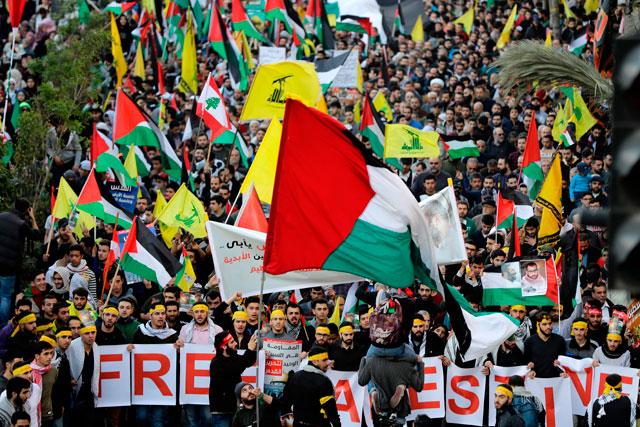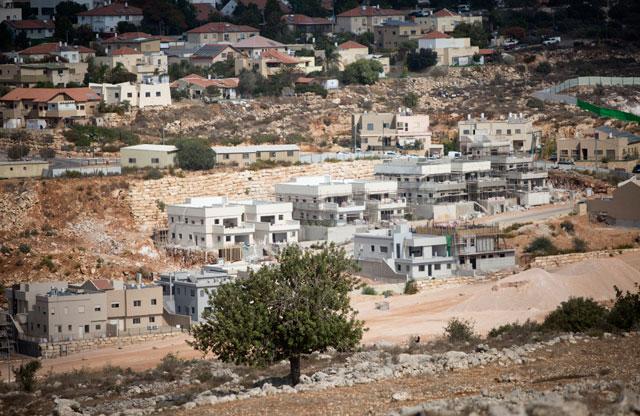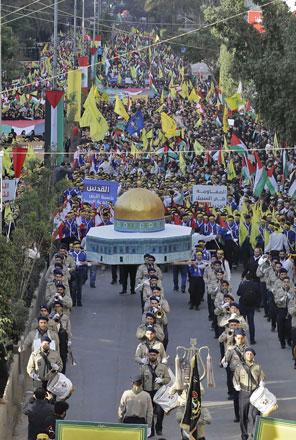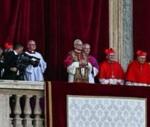You are here
Trump visit seen as long shot to revive Israeli-Palestinian peacemaking
By Reuters - May 18,2017 - Last updated at May 18,2017

People react next to the body of a Palestinian man who was killed during confrontations between Israeli forces and Palestinians near the Hawara checkpoint near the West Bank city of Nablus on Thursday (Reuters photo)
WASHINGTON/OCUUPIED JERUSALEM — Just four months after taking office, Donald Trump will make the earliest foray into Israeli-Palestinian peacemaking by any US president next week. But with mounting obstacles at home and abroad, he faces long odds of succeeding where more experienced predecessors have failed.
Even as last-minute changes are being made to Trump's ambitious Middle East itinerary, the trip has been complicated by Israeli concerns about his sharing of sensitive intelligence with Russia that may have compromised an Israeli agent, and by his decision to hold off on a campaign promise to move the US embassy from Tel Aviv to occupied Jerusalem
Adding to those issues, disarray in the White House over Trump's firing of FBI director James Comey and swirling controversy over his aides' contacts with Russia appear to have distracted from efforts to prepare the new president for what could be the most complex leg of his first international tour.
Trump has boasted that with his negotiating skills he can bring Israelis and Palestinians together to resolve one of the world's most intractable conflicts and do "the ultimate deal".
But officials on both sides see scant prospects for any major breakthrough in long-stalled negotiations during his 24-hour visit on Monday and Tuesday.
Even if Trump’s on-the-ground engagement may be premature, some experts say he can be expected to press Israeli and Palestinian leaders for conciliatory words if not gestures — and the two sides may struggle to accommodate him.
“The only variable that has changed is President Trump, and the fact that President Trump wants to do a deal,” said Robert Danin, a former adviser to the Middle East “Quartet” of international peace backers and now a senior analyst at the Council on Foreign Relations think tank.
“Given the president’s proclivities, no one wants to get on his bad side,” he said.
The visit will be a significant foreign policy test for Trump, who has yet to demonstrate a firm grasp of the nuances of Middle East diplomacy. Top advisers he has tasked with nuts-and-bolts negotiations, led by his son-in-law Jared Kushner, are also lacking experience.
The two leaders most needed to rejuvenate the peace process, Israeli Prime Minister Benjamin Netanyahu and Palestinian President Mahmoud Abbas, have shown little inclination toward significant concessions — though experts say they have no choice but to cooperate with Trump.
White House aides insist Trump is getting up-to-speed on the issues and that the time could be right for his “disruptive” approach to challenge failed policies of the past.
Israeli officials appear unconvinced. Asked if he understood what Trump’s Middle East policy was, one senior official replied: “I’m not entirely sure they know what it is.”
No peace plan
Flying in directly from his first stop in Saudi Arabia, Trump is unlikely to lay out Middle East peace proposals, not least because, as aides acknowledge, his administration has yet to craft a strategy.
There are also no plans for Trump — who will see Netanyahu in Jerusalem and Abbas in Bethlehem in the occupied West Bank — to bring the two together, one senior US official said. “We don’t think it’s the right time just yet,” the aide said.
The last round of peace talks collapsed in 2014, a key stumbling block being Israel’s settlement-building on occupied land that Palestinians want for a state.
While Israelis and Palestinians alike are uncertain what Trump will ask of them, experts believe he will be looking to coax them to make an explicit commitment to return to the table without pre-conditions, start work on a timetable for talks and consider mutual “confidence-building” steps.
Israeli officials have been especially unnerved by Trump. They did not expect any real pressure on the Palestinian issue after campaign rhetoric that promised a more pro-Israel approach than his predecessor Barack Obama, who had an acrimonious relationship with Netanyahu.
The Israeli leader, whose far-right coalition partners oppose the creation of a Palestinian state, has told his ministers he is waiting to hear more from Trump before making any proposals of his own.
Amid speculation that Washington could push for a regional peace conference, Netanyahu has conferred with advisers on what he would have to offer if he wants to draw in Saudi Arabia and Gulf states in a bid for broader Arab-Israeli rapprochement, Israeli officials said.
Trump, who has hosted Netanyahu and Abbas separately at the White House, caught the Israeli leader off guard in February when he urged him to “hold back on settlements for a bit”.
In another jolt to Netanyahu and his allies, senior administration officials said on Wednesday that Trump had ruled out any immediate relocation of the US embassy to Jerusalem, a campaign promise that had pleased Israelis but if implemented would upend decades of US policy and make it all but impossible for the Palestinians to re-enter talks.
Trump remains committed to an embassy move and could reaffirm that without specifying a timeframe, one official said. Israel claims all of Jerusalem as its capital, a position not recognised internationally. Palestinians want East Jerusalem, captured by Israel in the 1967 Middle East war, as the capital of their future state, along with Gaza and the West Bank.
Palestinians cooperative but wary
While welcoming Trump’s efforts and committing themselves to work with him, some Palestinian officials remain wary that he has yet to publicly back a two-state solution, the longtime bedrock of US and international policy.
Trump said in February he was not necessarily wedded to that idea, saying he was happy with any deal that “both parties like”.
Hanan Ashrawi, a senior official in the Palestine Liberation Organisation, said Palestinians were taking Trump’s efforts with “a very strong dose of healthy skepticism”.
US officials said the administration is also seeking to enlist Israel’s Sunni Arab neighbours, who share Israeli concerns about Shiite Iran, in a broader regional peace process.
Some Gulf Arab diplomats have floated the notion of making a positive gesture toward Israel, possibly a limited upgrading of diplomatic and economic ties, in exchange for up-front concessions to the Palestinians.
Dennis Ross, a veteran former Middle East negotiator who has been consulted by Trump’s aides, said the president must avoid raising hopes for a quick resolution of the conflict that has eluded successive US administrations.
“The president may be right, this is the ultimate deal,” he said, “but it’s definitely not just around the corner”.
Related Articles
OCCUPIED JERUSALEM — A fifth day of angry protests was expected in the Middle East on Monday over US President Donald Trump’s declaration of
OCCUPIED JERUSALEM — Donald Trump's shock election as president will likely result in a US tilt towards Israel that puts a Palestinian state
BRUSSELS — Prime Minister Benjamin Netanyahu took his case to Europe to ask allies to join the United States in recognising occupied Jerusal

















